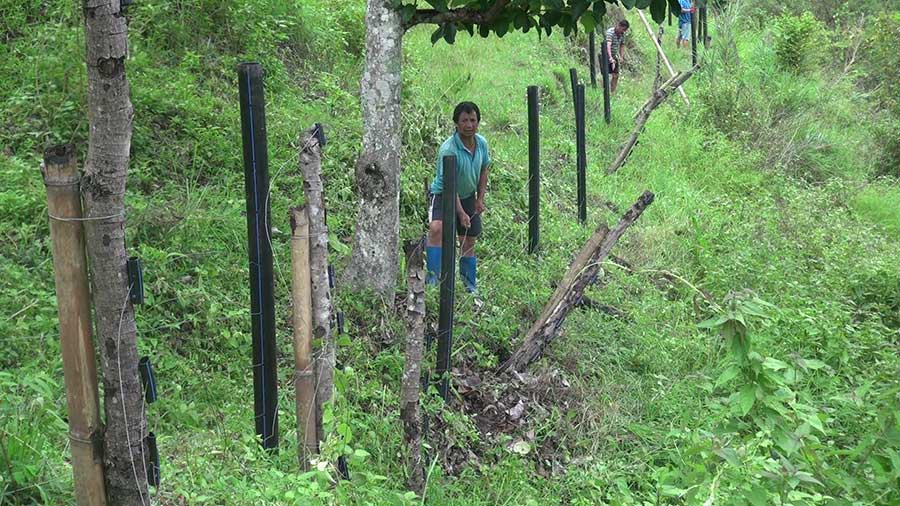
For years, farmers across the country have been using wooden posts to enclose their fields with electric fencing. But they have to change the posts every few years due to the poor durability of the wood. To address this, the agriculture ministry started replacing the wooden posts with plastic posts on a pilot basis a few years ago. Following its success in a few districts, the agriculture sector in Tsirang also started using plastic posts to install electric fencing.
Some seven households in Dekiling chiwog of Semjong Gewog are removing the old wooden posts that were installed around three years ago. According to the farmers, the electric fencing installed on the wooden posts served its purpose only as long as the wood stood firm. Once the wooden post collapses, that is after a year or two of its installation, they lose their crops to wild animals.
They are replacing the wooden posts with plastic pipes in the hope of reaping all their harvests without losing anything to wild animals. They are using the posts to enclose more than 12 acres of their farmland with electric fencing.
“We would lose our crops to wild boars and deer despite enclosing fields with electric fencing as wooden posts collapse after a few years,” said Mandip Tamang, a farmer of Dekiling in Semjong Gewog.
“Wooden logs collapse after around four years and then we have to keep on changing. We are happy to have pipe posts because we are told that we don’t have to repair electric fencing now and then,” said Chandra Bdr. Tamang, another farmer from the chiwog.
“Pipe posts are far better than the wooden posts. Therefore, it would be nice if the government could provide pipe posts at subsidized rates to farmers,” said Sangay Tamang.
Some international studies have shown that plastic posts could last for up to a hundred years if designed and installed correctly. In Tsirang, the agriculture officials are expecting the posts will last at least 50 years.
“There are debates over whether electric fencing is benefiting the farmers or not. There is no doubt that it benefits our farmers. But with changing times, it is important to come up with new designs and innovative ideas. Replacing the wooden posts with the pipe posts is one such example,” said Namgay, the Agriculture Extension Supervisor of Semjong Gewog.
“We have installed the plastic posts with financial support from the district administration. Henceforth, looking at its benefit, the district will also initiate similar projects. We would be grateful if gewog administrations could also allocate some budget to install pipe posts for electric fencing,” added Dorji Gyeltshen, the Senior District Agriculture Officer.
Electric fencing was first legalized in 2012 to solve the longstanding issue of human-wildlife conflict.
Exploring alternatives such as plastic posts will help the farmers continue farming with renewed spirits.
Pema Tshewang, Tsirang
Edited by Phub Gyem










